Trusted by NICUs for feeding 125,000+ preemies. Ask your care team for Prolacta by name.


Safe Nutrition for the Smallest Preemies

Prolacta's nutritional fortifiers and formulas are the only ones in the U.S. made from 100% donor breastmilk (instead of cow milk), to help your preemie grow strong and thrive.
Clinically proven to help preemies go home sooner[1]
Trusted by leading NICUs for feeding the smallest preemies[15]
When used as part of an exclusive human milk diet for preemies <2.75 lbs.
Safe Nutrition for the Smallest Preemies
Prolacta's nutritional fortifiers and formulas are the only ones in the U.S. made from 100% donor breastmilk (instead of cow milk), to help your preemie grow strong and thrive.
Call Our Parent Support Hotline
Available 24/7 to answer NICU nutrition questions, explain Prolacta's fortifiers, and offer loving support. Call 1.888.354.5818 anytime – we're always here to help.

Available Overnight

Shipped overnight by prescription to U.S. hospital NICUs since 2006.
If your preemie is born weighing <2.75 lbs, a fortifier will be mixed with breastmilk to provide the extra calories and protein they need to grow. Understanding your nutrition options in the NICU will help you and your care team make the right choice for your baby.
Support When You Need It Most
Navigating NICU nutrition can feel overwhelming. Our team can provide info and guidance to help you understand your options. Call 1.888.354.5818 anytime.

Baby Kallie | Born: 24 weeks | Birth weight: 13.1 oz | Days in the NICU: 150
Why Your Preemie Needs 100% Human Milk

Prolacta baby: Kallie | Born: 24 weeks | Birth weight: 13.1 oz | Days in the NICU: 150
Understanding Your Preemie's Nutrition Options
The Benefits of Breast Milk-Based Fortifiers & Formulas:
Nature's Perfect Protection: Breastmilk is full of immune-boosting properties to help fight infections and help babies grow.14
Get Home Sooner: Shown to help preemies grow healthy and leave the NICU sooner.1
Compared to cow milk-based products in preemies weighing <2.75 lbs
BE AWARE:
ALL “Human Milk Fortifiers (HMF)” — except one — are made from cow milk in the US. Only Prolacta's HMF is made from 100% donor breastmilk — not cow milk.
Support When You Need It Most
Navigating NICU nutrition can feel overwhelming. Our team can provide info and guidance to help you understand your options. Call 1.888.354.5818 anytime.
Advanced Nutrition Science
Compared to cow milk-based products in preemies <2.75lbs, an exclusive human milk diet (EHMD) with Prolacta’s 100% breastmilk-based nutritional fortifiers, has shown in numerous clinical studies to provide:
Discussing Fortifier Choices with Your Care Team
Preemies under 2.75 lbs need a fortifier added to their feeds for extra calories and protein. Being informed about your nutrition options helps you make the best decision with your preemie's care team.
Join Thousands of Families Who Trust Prolacta
Because when every ounce matters, families and NICUs turn to Prolacta for nutritional support.

Baby Jahaan
Born: 29 weeks | Birth weight: 1 lb 15 oz | Days in the NICU: 61
Born: 29 weeks | Birth weight: 1 lb 15 oz
Days in the NICU: 61

His mom, Twinkle, remembers the fear of those first days:
"I didn’t know if my tiny baby could overcome the challenges ahead."
Then his NICU team started Jahaan on a Prolacta fortifier.

The difference was life-changing.
Within weeks, Jahaan began to steadily gain weight. His body was absorbing the critical nutrients he needed.
He avoided dangerous complications often seen in preemies fed cow milk-based products.
Today, Jahaan is a thriving toddler, hitting milestones his parents once only dreamed of.
“I truly believe that the human milk-based fortifier played a big role in Jahaan’s growth and development,” said his mom.
**Any views, opinions, findings, assertions, conclusions or recommendations expressed are solely those of the individual. The content is provided for informational purposes only and should not be taken as medical advice.
Why Prolacta Is the Safe Choice for Your Preemie
There is only one nutritional fortifier in the U.S. made exclusively from 100% donor breastmilk: Prolact+ H2MF® human milk fortifier (human, pasteurized).

Prolacta is shown to:
Reduce feeding issues associated with cow milk-based products1
Get your baby home from the NICU sooner1
Compared to cow milk-based products in preemies weighing <2.75 lbs


Baby Eliza and Baby Octavia
Born: 28 weeks | Birth weight: 2 lbs 8 oz & 1 lb 14 oz | Days in the NICU: 53 & 63
Born: 28 weeks
Birth weight: 2 lbs 8 oz & 1 lb 14 oz
Days in the NICU: 53 & 63

Eliza and Octavia faced overwhelming odds. Their mom Caytlin recalls the fear:
"They were so tiny—every ounce mattered."

Their NICU team chose Prolacta’s 100% breastmilk-based fortifiers and formulas to:
Support their growth and development during critical early weeks
Help them gain weight steadily despite their micro-preemie size
Avoid complications linked to cow milk-based products
“The donor breastmilk and the (Prolacta) human milk fortifiers gave my babies a good start in their NICU journey," said their mom.
**Any views, opinions, findings, assertions, conclusions or recommendations expressed are solely those of the individual. The content is provided for informational purposes only and should not be taken as medical advice.
Critical Choice in the First Weeks of Life
Watch how families worked with their NICU care team to bring Prolacta fortifiers and formulas into their hospital.
Baby Aria | Born: 27 weeks | Birth weight: 1 lb 6 oz | Days in NICU: 110
Baby Leah Michelle | Born: 23 weeks | Birth weight: 1 lb 8 oz | Days in NICU: 131
**Any views, opinions, findings, assertions, conclusions or recommendations expressed are solely those of the individual. The content is provided for informational purposes only and should not be taken as medical advice.
Frequently Asked Questions
How do I know if my preemie qualifies for Prolacta's fortifiers and formulas?
Prolacta's breastmilk-based fortifiers and formulas are typically recommended for preemies weighing less than 2.75 lbs. They can be shipped overnight to any NICU in the U.S. and no hospital contract is required.
In 2024, more than 50% of acute care NICUs in the U.S. used Prolacta’s nutritional products.15 If your hospital isn’t one of them, your NICU can still request our fortifiers be overnighted for even a single baby.
Ask your NICU team if your baby qualifies or contact Prolacta at 1.888.354.5818 for more information.
What if my hospital says they don't carry Prolacta products?
Any NICU can order Prolacta's fortifiers and formulas by prescription, even if they don't routinely stock them. They can be delivered to any NICU in the U.S., often overnight, and with no contract required.
If your hospital doesn’t offer it yet, call our Parent Support Hotline at 1.888.354.5818. We’ll help you understand your options so you can make an informed choice with your care team.
Will I be billed for Prolacta's nutritional products?
Parents do not pay for the use of Prolacta's nutritional products. Your hospital and/or insurance covers the cost of in-patient nutrition.
I've heard about the NEC baby formula lawsuits — what are they about?
Recent lawsuits about cow milk-based products used in NICUs and the life-threatening intestinal disease called NEC have worried many parents and our hearts go out to the babies and families affected. While Prolacta Bioscience isn't involved in any of these lawsuits, the matter has highlighted why our 100% breastmilk-based nutrition is beneficial for the tiniest preemies. Multiple studies show an exclusive human milk diet including Prolata’s fortifiers reduces the risk of NEC in preemies born weighing <2.75 pounds, compared to cow milk-based products.1,2,8
What is a fortifier?
A fortifier is a nutritional boost added to breastmilk to give preemies the extra calories and protein they need to grow. When mixed with your breastmilk, it’s kind of like a preemie protein shake.
BE AWARE – Despite the name designation,"Human Milk Fortifier" (HMF) – all but one brand of fortifiers in the U.S. are made from cow milk. In the U.S., Prolacta is the only brand of "human milk fortifier" made from 100% donor breastmilk, making it a gentle choice for your preemie’s immature digestive system.
What is NEC (necrotizing enterocolitis)?
NEC, or necrotizing enterocolitis, is a serious intestinal disease primarily affecting premature or sick newborns. It causes the lining of the baby’s intestine to become swollen and damaged. In severe cases, the intestinal wall can develop a hole that may require surgery to repair. An exclusive human milk diet including Prolacta’s products are clinically proven to reduce the risk of NEC, protecting fragile babies from this life-threatening disease.1,2,8
What's the difference between the various human milk fortifiers (HMFs)?
While all fortifiers are labeled 'human milk fortifier,' only Prolacta's are made from 100% donor human milk. All others are made from cow milk.
Studies show that an "Exclusive Human Milk Diet" (mom’s own milk or donor milk, if mom’s milk is unavailable, combined with Prolacta’s fortifiers or formulas) is associated with fewer complications, as compared with babies fed a cow-milk based formula or fortifier3, 13, 8
What is an Exclusive Human Milk Diet (EHMD)?
An EHMD means your baby’s diet consists of 100% breastmilk and products made from 100% breastmilk. In the NICU, this includes breastmilk + Prolacta's breastmilk-based fortifiers or formulas. An EHMD is clinically proven to reduce serious complications in preemies compared to diets containing cow milk-based products.1, 2, 8
Last year, over 50% of advanced NICUs in the U.S. used Prolacta’s nutritional products for the smallest preemies in their care[15
Why is breastmilk so important?
Breastmilk is nature's perfect food for your baby. Breastmilk is full of antibodies and other immune-boosting properties to help fight infections, and it is gentle on the immature digestive tract of your premature baby.14 However, breastmilk alone isn't enough for extremely premature babies. They need 20-40% more calories and 2-3x the protein than breastmilk provides.5,14
Prolacta's breastmilk-based fortifiers and formulas add this extra nutrition while maintaining the safety of an exclusive human milk diet, helping these tiny babies grow and go home sooner.1,6,7,4
Will my preemie still get my breastmilk?
If you are able to produce breastmilk, yes, it will still be an important part of your baby's nutrition. Fortifiers simply add the extra calories and protein your baby needs to grow stronger.6,7,4
For moms who can’t produce enough breastmilk, many hospitals offer donor breastmilk, including donor breastmilk from Prolacta and our breastmilk-based Ready to Feed (RTF) formula.
Where does Prolacta get the breastmilk used in its fortifiers?
Healthy moms in the U.S. with more breastmilk than their own babies need, donate their excess milk to Prolacta to help nourish vulnerable preemies in the NICU. Each donor is carefully screened (like blood donors), and every donation is tested for disease-causing pathogens, DNA-matched to its donor, and pasteurized for safety. Each bottle of fortifier is tracked from donor to NICU to ensure quality and safety.
What nutritional products does Prolacta offer?
Prolacta offers a comprehensive range of 100% human milk-based nutritional fortifiers and formulas.
Premature Infant Nutrition
Prolact+ H2MF: Supplementing mom's own or donor breastmilk with the first commercially available human milk–based fortifier made from 100% human donor milk instead of cow milk.
Prolact CR® Human Milk Caloric Fortifier: When premature infants need additional calories to support their growth, this human milk–based caloric fortifier delivers.
Prolact RTF (Ready-To-Feed): This ready-to-feed, breastmilk–based formula offers NICUs an alternative to cow milk-based formula when mom's breastmilk is not available.
Human Donor Milk (Pasteurized, Standardized): When an adequate supply of mom's breastmilk is not available, donor milk is rapidly becoming the standard of care for feeding premature infants.
Term Infant Nutrition
Surgifort® Human Milk Fortifier (Human, Pasteurized): Term babies with gastroschisis have special nutritional needs considering their delicate gastrointestinal system. When recovering from surgery, these term babies need human milk and may need human-milk based fortifiers for additional nutrition to help recover from surgery.
Ready to Learn More About Your Preemie's Nutrition Options?
The nutrition your baby receives in the NICU can shape their health and development long after they come home.
Our Parent Support Team is here to help you understand how Prolacta's fortifiers and formulas might benefit your baby and guide you through the next steps.
Call 1.888.354.5818 to speak with our team, or fill out the form and we'll call you back.

Take the first step.
Fill out the form and a member of our Parent Support Team will reach out—because every preemie deserves access to the best care available.
I acknowledge that I have read and understand, and I accept and agree to the Prolacta Terms of Use and Privacy Policy.*
By checking this box, I consent to receive transactional messages from Prolacta at 1.888.354.5818, related to my inquiry. These messages may include appointment reminders, and account notifications among others. Message frequency may vary. Message & Data rates may apply. Reply HELP for help or STOP to opt-out.
Citations
1. [Assad 2016]: Assad M, Elliott MJ, Abraham JH. Decreased cost and improved feeding tolerance in VLBW infants fed an exclusive human milk diet. J Perinatol. 2016;36(3):216-220. doi.org/10.1038/jp.2015.168
2. [Hair 2016] Hair AB, Peluso AM, Hawthorne KM, et al. Beyond necrotizing enterocolitis prevention: improving outcomes with an exclusive human milk-based diet [published correction appears in Breastfeed Med. 2017 Dec;12 (10):663]. Breastfeed Med. 2016;11(2):70-74. https://doi.org/10.1089/bfm.2015.0134
3. [Hair 2022] Hair AB, Patel AL, Kiechl-Kohlendorfer U, et al. Neurodevelopmental outcomes of extremely preterm infants fed an exclusive human milk-based diet versus a mixed human milk + bovine milk-based diet: a multi-center study. J Perinatol. 2022;42(11):1485-1488. https://doi.org/10.1038/s41372-022-01513-3
4. [Hair 2013] Hair AB, Hawthorne KM, Chetta KE, Abrams SA. Human milk feeding supports adequate growth in infants ≤ 1250 grams birth weight. BMC Res Notes. 2013;6:459. Published 2013 Nov 13. https://doi.org/10.1186/1756-0500-6-459
5. [Hair 2016/cream study] Hair AB, Bergner EM, Lee ML, et al. Premature infants 750-1,250 g birth weight supplemented with a novel human milk-derived cream are discharged sooner. Breastfeed Med. 2016;11(3):133-137. doi.org/10.1089/bfm.2015.0166
6. [Huston 2020] Huston R, Lee M, Rider E, et al. Early fortification of enteral feedings for infants <1250 grams birth weight receiving a human milk diet including human milk-based fortifier. J Neonatal Perinatal Med. 2020;13(2):215-221. https://doi.org/10.3233/NPM-190300
7. [Huston 2018] Huston RK, Markell AM, McCulley EA, Gardiner SK, Sweeney SL. Improving growth for infants ≤1250 grams receiving an exclusive human milk diet. Nutr Clin Pract. 2018;33(5):671-678. https://doi.org/10.1002/ncp.10054
8. [Sullivan 2010] Sullivan S, Schanler RJ, Kim JH, et al. An exclusively human milk-based diet is associated with a lower rate of necrotizing enterocolitis than a diet of human milk and bovine milk-based products. J Pediatr. 2010;156(4):562-7.e1. https://doi.org/10.1016/j.jpeds.2009.10.040
9. [Abrams 2014] Abrams SA, Schanler RJ, Lee ML, Rechtman DJ. Greater mortality and morbidity in extremely preterm infants fed a diet containing cow milk protein products. Breastfeed Med. 2014;9(6):281-285. https://doi.org/10.1089/bfm.2014.0024
10. [Delaney Manthe 2019] Delaney Manthe E, Perks PH, Swanson JR. Team-based implementation of an exclusive human milk diet. Adv Neonatal Care. 2019;19(6):460-467. https://doi.org/10.1097/ANC.0000000000000676
11. [Bergner 2020] Bergner EM, Shypailo R, Visuthranukul C, et al. Growth, body composition, and neurodevelopmental outcomes at 2 years among preterm infants fed an exclusive human milk diet in the neonatal intensive care unit: a pilot study. Breastfeed Med. 2020. 15(5):304-311. https://doi.com/10.1089/bfm.2019.0210
12. [O'Connor 2019] O'Connor DL, Kiss A, Tomlinson C, et al. Nutrient enrichment of human milk with human and bovine milk-based fortifiers for infants born weighing <1250 g: a randomized clinical trial [published correction appears in Am J Clin Nutr. 2019 Aug 1;110(2):529] [published correction appears in Am J Clin Nutr. 2020 May 1;111(5):1112]. Am J Clin Nutr. 2018;108(1):108-116. https://doi.org/10.1093/ajcn/nqy067
13. [Cristofalo 2013] Cristofalo EA, et al. Randomized trial of exclusive human milk versus preterm formula diets in extremely premature infants. J Pediatr. 2013;163(6):1592-1595. doi.org/10.1016/j.jpeds.2013.07.011
14. [AAP 2022] American Academy of Pediatrics. Policy Statement: Breastfeeding and the Use of Human Milk. Section on Breastfeeding. Pediatrics. 2022;150(1):e2022057988.
15. [Data on file] Data on file; number of U.S. hospitals that used Prolacta's fortifiers and formulas in 2024.
16. [Lucas 2020] Lucas A, Boscardin J, Abrams SA. Preterm infants fed cow’s milk-derived fortifier had adverse outcomes despite a base diet of only mother’s own milk. Breastfeed Med. 2020;15(5):297-303. https://doi.com/10.1089/bfm.2019.0133
17. [Alganabi 2019] Alganabi M, Lee C, Bindi E, Li B, Pierro A. Recent advances in understanding necrotizing enterocolitis. F1000Res. 2019 Jan 25;8:F1000 Faculty Rev-107. doi: 10.12688/f1000research.17228.1. PMID: 30740215; PMCID: PMC6348433.
18. [Galis 2024] Galis, R.; Trif, P.; Mudura, D.; Mazela, J.; Daly, M.C.; Kramer, B.W.; Diggikar, S. Association of Fortification with Human Milk versus Bovine Milk-Based Fortifiers on Short-Term Outcomes in Preterm Infants—A Meta-Analysis. Nutrients 2024, 16, 910. https://doi.org/10.3390/nu16060910.

Follow us
We have updated our Privacy and Cookie Policies, effective August 15, 2024. In accordance with these policies, when you visit our websites, we may collect data about you using cookies and similar third party tracking technologies ("Cookies"). Cookies may be necessary for the basic functionality of the website, as well as other purposes, such as targeted advertising and analytics. Your continued use of the website constitutes your consent to Cookies. For more information on our privacy practices, including how to manage certain types of cookies, please visit Privacy Policy and Cookie Policy.
Copyright © 2025 Prolacta. All Rights Reserved.







